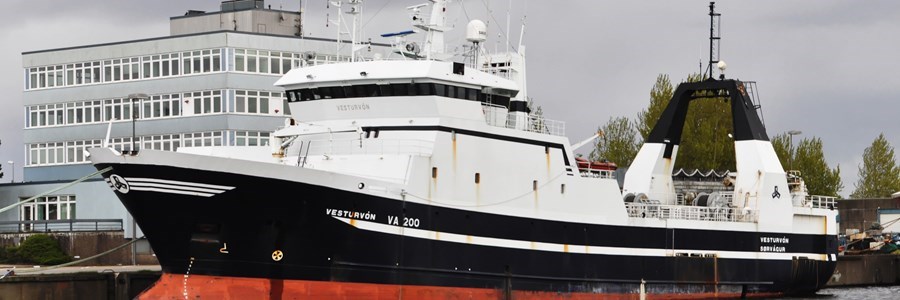Europêche satisfait du résultat des négociations trilogue sur le règlement de la flotte de pêche externe

Le Conseil de l'UE et le Parlement européen ont conclu un accord politique sur un nouveau cadre législatif pour la gestion durable des flottes de pêche extérieures. Le nouveau régime prévoit des règles strictes, transparentes et harmonisées pour la délivrance et la gestion des autorisations de pêche aux navires de l'UE pêchant en dehors des eaux communautaires et aux navires étrangers opérant dans les eaux de l'UE. Bien que Europêche soit d'accord sur la nécessité de moderniser le système, l'organisme de pêche a insisté sur la suppression de certaines dispositions qui menaçaient la survie des entreprises de pêche responsables. En ce sens, l'association de pêche célèbre que leur appel à éliminer l'infâme «système de double peine» du texte du règlement a finalement été approuvé par les co-législateurs.
The Regulation has been revised in order to adapt to the new objectives enshrined in the new Common Fisheries Policy. It aims to improve governance, increase transparency, better monitoring and enforcement of the rules. However, in order to achieve these targets, in certain cases such as direct licenses[1], transshipments or reflagging, it will create an extra administrative burden for the operator. Since the beginning of the legislative process, Europêche has advocated the need to strike the right balance between more control and simplification so as to allow our operators to continue fishing in a sustainable and profitable manner.
This balance would have been deeply affected by the introduction of the ‘double penalty system’, which was disproportionate, since the operator would have been subject not only to strong penalties, but also to the non-eligibility to obtain an authorisation for 12 months.
The new law introduces however positive provisions to improve governance and fight against illegal fishing by establishing the obligation to obtain a unique vessel identification number granted by the International Maritime Organisation (IMO) where required by Union legislation. The measure, supported by Europêche, will help prevent fraud since the IMO number remains linked to the ship for its lifetime, regardless of a change in name, flag or owner.
The creation of a public database for fishing authorisations is also welcomed by the sector since it will increase transparency. However, Europêche applauds that following intense negotiations, policy-makers did finally not decide to make certain information public, as recommended by the fishing body. This information refers to private and confidential data such as the name and address of the beneficial owner of the company or the fishing opportunities. This sensitive information will continue to be highly monitored and controlled by governments and the European Commission.
Javier Garat, President of Europêche stated: ‘Pending the final text of the Regulation, we are generally satisfied with the outcome of the trilogue negotiations since it has eliminated distressing provisions such as the ‘double penalty system’. It should be noted, however, that the new Regulation imposes greater costs and administrative burdens on EU operators to prove the sustainability of their fishing activities. The fishing industry is required once again by the EU to make an extra-effort to adapt to and comply with new stringent rules.’
Garat concluded: ‘The EU needs now to promote globally these principles and high standards. Only then can a true international level-playing field be achieved and compete in equal conditions with other big fishing nations. The EU long-distance fleet will continue playing a leadership role on sustainability and best practices.’
Ends
Europêche represents the fisheries sector in Europe. Currently, the Association comprises 15 national organisations of fishing enterprises from the following 10 EU Member States: DE, DK, ES, FR, IT, MT, NL, LV, PL, UK.
Press contacts:
Daniel Voces, Acting Managing Director of Europêche: +32.2.230.48.48 daniel.voces@europeche.org
[1] ‘Direct authorisation’ means a fishing authorisation issued by a third country competent authority to a Union fishing vessel outside the framework of a sustainable fisheries partnership agreement.
Sources: Europeche
Attachments:
Tags: FAR, flotte longue distance, SFPA, ORGP, double pénalité, flotte de pêche externe, Trilogue